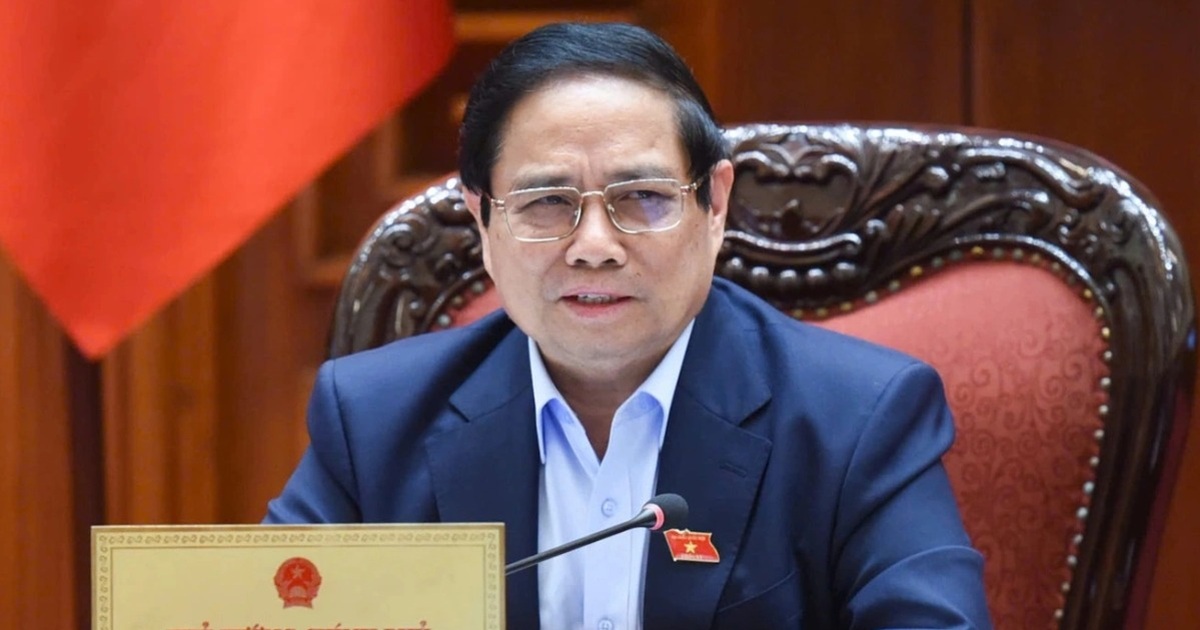Pada sore hari tanggal 23/1, dalam rapat penyerapan keputusan Dewan Pusat tentang urusan kepemimpinan, Bapak Bui Van Nghiem – Anggota Dewan Pusat, mantan Sekretaris Partai Provinsi Vinh Long, telah di调职并任命为中共中央内政部副部长。
Pimpinan Bidang Politik Internal Partai Pusat Phan Dinh Trac menyerahkan keputusan pengangkatan kepada Bapak Bui Van Nghiem (Foto: Hong Phong).
Keputusan Kepemimpinan Penting dari Dewan Pusat
Dalam rapat tersebut, Wakil Ketua Departemen Organisasi Partai Pusat Phan Thang An mengumumkan keputusan Dewan Pusat tentang pembebasan posisi Sekretaris Partai Provinsi Vinh Long periode 2020-2025 dari Bapak Bui Van Nghiem. Sebagai gantinya, beliau di调职并任命为中共中央内政部副部长。这是Nghiem先生职业生涯中的一个重要转折点。
Mewakili Dewan Pusat, Pimpinan Bidang Politik Internal Partai Pusat Phan Dinh Trac menyerahkan keputusan pengangkatan dan menghargai kemampuan serta integritas moral Bapak Bui Van Nghiem. Pak Trac menekankan bahwa Pak Nghiem adalah seorang pejabat yang berkembang dari daerah, selalu menunjukkan keteguhan politik, gaya hidup sederhana, dan sikap tanggung jawab tinggi dalam setiap posisi kerja.
Pimpinan Bidang Politik Internal Partai Pusat Phan Dinh Trac memberikan pidato di rapat (Foto: Hong Phong).
Perjalanan Karier dan Kontribusi Menonjol
Bapak Bui Van Nghiem lahir pada tahun 1966 di Vinh Long, adalah seorang pejabat dengan pengalaman luas dalam bidang politik. Beliau memiliki gelar Doktor Ilmu Politik, Magister Ilmu Politik, dan Sarjana Pembangunan Partai dan Pemerintahan Negara. Melalui banyak posisi kerja di daerah, beliau pernah menjabat sebagai pejabat penting seperti: Kepala Kantor Sekretariat Komite Kabupaten Vuong Lien, Kepala Eksekutif Kabupaten Vuong Lien, Sekretaris Komite Kabupaten Vuong Lien, Wakil Ketua Dewan Perwakilan Rakyat Provinsi Vinh Long, dan akhirnya menjadi Sekretaris Partai Provinsi Vinh Long sejak bulan April 2021.
Selama perjalanan karirnya, Pak Nghiem selalu dipuji atas loyalitas politik, kemampuan kepemimpinan, dan teladan dalam perannya sebagai pemimpin. Prestasi yang dicapai oleh beliau di Vinh Long telah menciptakan dasar yang kokoh untuk pengangkatannya ke posisi baru di Bidang Politik Internal Partai Pusat.
Janji di Posisi Baru
Dalam pidato menerima tugas, Wakil Pimpinan Bidang Politik Internal Partai Pusat Bui Van Nghiem menyatakan rasa terima kasih yang mendalam atas kepercayaan Dewan Pusat. Beliau berjanji akan terus berusaha keras, terus belajar untuk menyelesaikan tugas yang diberikan dengan baik. Beliau menekankan pentingnya memberikan saran dan bantuan kepada Komite Eksekutif Partai Pusat, Dewan Pusat, dan Dewan Sekretaris Partai dalam bidang politik internal, pencegahan korupsi, dan reformasi yudisial.
Selain itu, Pak Nghiem juga berjanji akan menjaga integritas moral, meningkatkan kemampuan profesional, dan terus memperbaiki diri untuk memenuhi persyaratan yang semakin tinggi dalam pekerjaan.
Kesimpulan
Pengangkatan dan penunjukan Bapak Bui Van Nghiem sebagai Wakil Pimpinan Bidang Politik Internal Partai Pusat menunjukkan pengakuan dan kepercayaan Dewan Pusat terhadap kemampuan dan integritas beliau. Di posisi baru ini, Pak Nghiem diharapkan akan terus mengembangkan pengalaman berharga yang telah dia kumpulkan, serta berkontribusi secara aktif pada perkembangan umum bidang politik internal dan upaya pembangunan negara.
Untuk pembaruan informasi lebih lanjut, pembaca dapat merujuk sumber artikel asli di bawah ini:
Sumber: Báo điện tử Dân Trí



